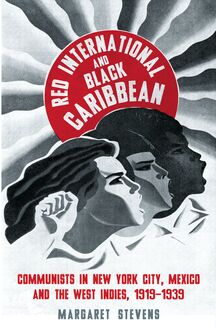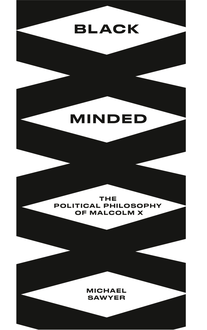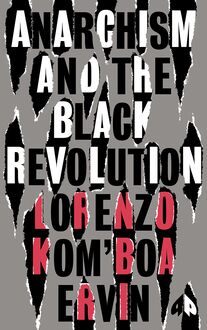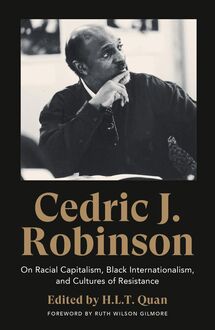-
 Univers
Univers
-
 Ebooks
Ebooks
-
 Livres audio
Livres audio
-
 Presse
Presse
-
 Podcasts
Podcasts
-
 BD
BD
-
 Documents
Documents
-
- Cours
- Révisions
- Ressources pédagogiques
- Sciences de l’éducation
- Manuels scolaires
- Langues
- Travaux de classe
- Annales de BEP
- Etudes supérieures
- Maternelle et primaire
- Fiches de lecture
- Orientation scolaire
- Méthodologie
- Corrigés de devoir
- Annales d’examens et concours
- Annales du bac
- Annales du brevet
- Rapports de stage
La lecture à portée de main
Vous pourrez modifier la taille du texte de cet ouvrage
Découvre YouScribe en t'inscrivant gratuitement
Je m'inscrisDécouvre YouScribe en t'inscrivant gratuitement
Je m'inscrisEn savoir plus
Vous pourrez modifier la taille du texte de cet ouvrage
En savoir plus

Description
'A powerful – even startling – book that challenges the shibboleths of 'white' anarchism'. Its analysis of police violence and the threat of fascism are as important now as they were at the end of the 1970s. Perhaps more so' - Peter James Hudson, Black Agenda Report
Anarchism and the Black Revolution first connected Black radical thought to anarchist theory in 1979. Now amidst a rising tide of Black political organizing, this foundational classic written by a key figure of the Civil Rights movement is republished with a wealth of original material for a new generation.
Anarchist theory has long suffered from a whiteness problem. This book places its critique of both capitalism and racism firmly at the centre of the text. Making a powerful case for the building of a Black revolutionary movement that rejects sexism, homophobia, militarism and racism, Lorenzo Kom’boa Ervin counters the lies and distortions about anarchism spread by its left- and right-wing opponents alike.
New material includes an interview with writer and activist William C. Anderson, as well as new essays, and a contextualizing biography of the author’s inspiring life.
Foreword by William C. Anderson
Catalyst by Joy James
Introduction
1. Anarchism Defined: A Tutorial on Anarchist Theory and Practice
2. Capitalism and Racism: An Analysis of White Supremacy and the Oppression of Peoples of Color
3. Anarchism and the Black Revolution
4. Pan-Africanism or Intercommunalism?
Ungovernable: An Interview with Lorenzo Kom’boa Ervin
Index
Sujets
Minority Studies
Ethnic Studies
Black Studies
Political Advocacy
Political Process
Political Ideologies
Political Freedom
Social Science
POLITICAL SCIENCE
Sociologie, société et politique
Partido Pantera Negra
Post-war
General officer
Revolution
Political philosophy
Activism
Anarchism
Black Panther Party
General
Révolution (homonymie)
BLM
Black Power
SNCC
Discrimination
Informations
| Publié par | Pluto Press |
| Date de parution | 20 octobre 2021 |
| Nombre de lectures | 0 |
| EAN13 | 9780745345796 |
| Langue | English |
Informations légales : prix de location à la page 0,0748€. Cette information est donnée uniquement à titre indicatif conformément à la législation en vigueur.
Extrait
Anarchism and the Black Revolution
A powerful-even startling-book that challenges the shibboleths of white anarchism . Its analysis of police violence and the threat of fascism are as important now as they were at the end of the 1970s. Perhaps more so.
-Peter James Hudson, Black Agenda Report
Black Critique
Series editors: Anthony Bogues and Bedour Alagraa
We live in a troubled world. The rise of authoritarianism marks the dominant current political order. The end of colonial empires did not inaugurate a more humane world; rather, the old order reasserted itself.
In opposition, throughout the twentieth century and until today, anti-racist, radical decolonization struggles attempted to create new forms of thought. Figures from Ida B. Wells to W.E.B. Du Bois and Steve Biko, from Claudia Jones to Walter Rodney and Am lcar Cabral produced work which drew from the historical experiences of Africa and the African diaspora. They drew inspiration from the Haitian revolution, radical black abolitionist thought and practice, and other currents that marked the contours of a black radical intellectual and political tradition.
The Black Critique series operates squarely within this tradition of ideas and political struggles. It includes books which foreground this rich and complex history. At a time when there is a deep desire for change, black radicalism is one of the most underexplored traditions that can drive emancipatory change today. This series highlights these critical ideas from anywhere in the black world, creating a new history of radical thought for our times.
Also available:
Moving Against the System:
The 1968 Congress of Black Writers and the Making of Global Consciousness
Edited and with an Introduction by David Austin
I am a Revolutionary:
Fred Hampton Speaks
Edited by Fred Hampton Jr. and Bedour Alagraa
A Certain Amount of Madness:
The Life, Politics and Legacies of Thomas Sankara
Edited by Amber Murrey
Cedric J. Robinson:
On Racial Capitalism, Black Internationalism, and Cultures of Resistance
Edited by H.L.T. Quan
Black Minded:
The Political Philosophy of Malcolm X
Michael Sawyer
Red International and Black Caribbean Communists in New York City ,
Mexico and the West Indies, 1919-1939
Margaret Stevens
The Point is to Change the World Selected Writings of Andaiye
Edited by Alissa Trotz
First published 2021 by Pluto Press
New Wing, Somerset House, Strand, London WC2R 1LA
www.plutobooks.com
Copyright Lorenzo Kom boa Ervin 2021
The right of Lorenzo Kom boa Ervin to be identified as the author of this work has been asserted in accordance with the Copyright, Designs and Patents Act 1988.
British Library Cataloguing in Publication Data
A catalogue record for this book is available from the British Library
ISBN 978 0 7453 4580 2 Hardback
ISBN 978 0 7453 4581 9 Paperback
ISBN 978 0 7453 4575 8 PDF
ISBN 978 0 7453 4579 6 EPUB
This book is printed on paper suitable for recycling and made from fully managed and sustained forest sources. Logging, pulping and manufacturing processes are expected to conform to the environmental standards of the country of origin.
Typeset by Stanford DTP Services, Northampton, England
Simultaneously printed in the United Kingdom and United States of America
Contents
Foreword by William C. Anderson
Catalyst by Joy James
Introduction
1. Anarchism Defined: A Tutorial on Anarchist Theory and Practice
What is Anarchism?
Economic and Social Organization
Types of Anarchists
Why I Am an Anarchist Today
Anarchist versus Marxist-Leninist Thoughts on the Organization of Society
General Principals of Anarchist-Communism
Capitalism, the State and Private Property
Anarchism, Violence and Authority
Anarchists and Revolutionary Organization
The American Government: The Best Argument for Anarchism!
Law and Government in America
The Anarchist Case against Representative Government
The American Bureaucratic State
Down with the Government!
2. Capitalism and Racism: An Analysis of White Supremacy and the Oppression of Peoples of Color
Race and Class: The Combined Character of Black/POC Oppression
Autonomy as a Revolutionary Tendency
Anarchism + Black Revolution = New Black Autonomous Politics
Black Autonomy is Not Separatist
3. Anarchism and the Black Revolution
Whither the Black Revolution?
A Call for a New Black Protest Movement
What Form Should This Movement Take?
Revolutionary Strategy and Tactics
A Critique of the New Black Panther Movements
Conclusion: The Party s Over. Build Something New!
Let s Organize the Hood: Inner City Organizing Projects
Crimes Against the People
The Drug Epidemic: A New Form of Black Genocide?
Community Control of the Police
Armed Defense of the Black Commune
Insurrection and Class Warfare
4. Pan-Africanism or Intercommunalism?
African Intercommunalism
Building an Autonomous Peoples of Color Movement
Structure
A Black Partisan Militia
Black Autonomy International Federation Council
The International Black Appeal
Community Organizing Institute
Reparations or Liberation?
Ungovernable: An Interview with Lorenzo Kom boa Ervin
Index
Dedicated to Martin Sostre, my late mentor; JoNina Ervin, my loving wife; Munyiga Ras Nokashere, staunchest comrade of the Black Autonomy movement from the beginning and throughout; William C. Anderson, who pushed me to re-write and to come to Pluto Press for this edition; Bedour Alagraa, of the Black Critique series, and others who helped and encouraged me to write this edition. I also give credit to the Institute for Anarchist Studies, which financed and encouraged me to write the previous edition of the book, and, by extension, this definitive edition. Thank you all.
Foreword
By William C. Anderson
It s not an exaggeration to say that Lorenzo Kom boa Ervin has changed the world. Countless people have been affected and influenced by his work throughout the years. His story is a testament to the extraordinary possibilities that lie just beneath the surface of the many passing moments of our lives. Unforeseeable, explosive events may erupt just because of someone making the decision to take a chance. Lorenzo decided to do this many times and that s what s led to yet another major event in his life. The first official publication of his legendary book, Anarchism and the Black Revolution , is yet another monumental occurrence in a life that almost seems cinematic.
Lorenzo Kom boa Ervin was born in 1947 in Chattanooga, Tennessee, to a mother who was a domestic worker and a father who was a chauffeur. With two parents working in service to wealthier white people in the apartheid of the Jim Crow South, it wasn t long before Lorenzo intimately understood the risks of being Black. At the age of five, surrounding white community members attempted to burn down his family home. The traumatic near death experience he wouldn t completely understand until he was older runs parallel to his radical trajectory. The symbolism in it shouldn t be neglected because it frames much of what s to come. As recalled by Harry Belafonte, Dr. Martin Luther King, Jr. once said that he believed Black America was integrating into a burning house. A question that responds to such a statement was raised in James Baldwin s The Fire Next Time , 1 Do I really want to be integrated into a burning house? Ervin s story answers no, time and time again.
As a young man, Lorenzo joined the army during the Vietnam War where he became an anti-war activist. This was the year the first U.S. combat troops arrived on the ground in a country that has still yet to recover from all the damage that was done by imperialist forces. At the same time, the USA was embroiled in the Civil Rights movement. The Voting Rights Act was signed this same year that Alabama police assaulted marchers on Bloody Sunday in Selma and attacked activists associated with Student Nonviolent Coordinating Committee (SNCC). This historic movement organization would attract Lorenzo after his anti-war activism saw him court martialed, prosecuted, and ultimately discharged.
He became affiliated with SNCC and was influenced by the organizer Mukasa Dada, formerly known as Willie Ricks who coined the Black Power slogan that was popularized by Kwame Ture (formerly Stokely Carmichael) and ultimately the Black Panther Party. Lorenzo had been selling the Black Panther newspaper while working with SNCC who had alliances with the party. He eventually started working with the party directly as a member, but he d eventually grow disillusioned with the leadership style among other aspects of the Panthers. Then his circumstances shifted dramatically after Martin Luther King, Jr. was assassinated. Rebellions and uprising broke out across the country and as a result, Tennessee state officials convened grand juries to investigate and punish Black activists and civil rights groups on felonious charges. Accused of gun running and threatening to bomb a Klan sympathizing judge, Lorenzo fled to Atlanta. He decided to take his flight from the charges levied against him even further and hijacked a plane to Cuba.
At the time of Ervin s departure, hijacking planes and fleeing to Cuba was more common than people may realize. The cases of Black radicals who did so are sometimes romanticized, but Ervin s experience highlights an important distinction. Upon his arrival he stayed with other hijackers who were grouped together before ultimately being imprisoned by the Cuban government and put into solitary confinement. Black Panther Party leader Eldridge Cleaver was already in Cuba himself and had a strained relationship with the government because of ongoing disagreements. The other Panthers there would be affected by the intensity of this situation and it led to Lorenzo getting travel documents before he was deported to Czechoslovakia.
His experience in Czechoslovakia wasn t much better. There he was subj
-
 Univers
Univers
-
 Ebooks
Ebooks
-
 Livres audio
Livres audio
-
 Presse
Presse
-
 Podcasts
Podcasts
-
 BD
BD
-
 Documents
Documents
-
Jeunesse
-
Littérature
-
Ressources professionnelles
-
Santé et bien-être
-
Savoirs
-
Education
-
Loisirs et hobbies
-
Art, musique et cinéma
-
Actualité et débat de société
-
Jeunesse
-
Littérature
-
Ressources professionnelles
-
Santé et bien-être
-
Savoirs
-
Education
-
Loisirs et hobbies
-
Art, musique et cinéma
-
Actualité et débat de société
-
Actualités
-
Lifestyle
-
Presse jeunesse
-
Presse professionnelle
-
Pratique
-
Presse sportive
-
Presse internationale
-
Culture & Médias
-
Action et Aventures
-
Science-fiction et Fantasy
-
Société
-
Jeunesse
-
Littérature
-
Ressources professionnelles
-
Santé et bien-être
-
Savoirs
-
Education
-
Loisirs et hobbies
-
Art, musique et cinéma
-
Actualité et débat de société
- Cours
- Révisions
- Ressources pédagogiques
- Sciences de l’éducation
- Manuels scolaires
- Langues
- Travaux de classe
- Annales de BEP
- Etudes supérieures
- Maternelle et primaire
- Fiches de lecture
- Orientation scolaire
- Méthodologie
- Corrigés de devoir
- Annales d’examens et concours
- Annales du bac
- Annales du brevet
- Rapports de stage











